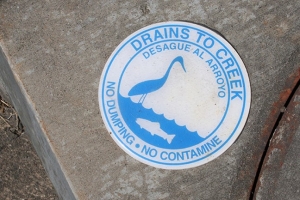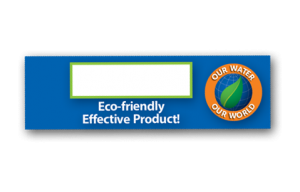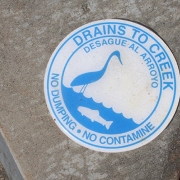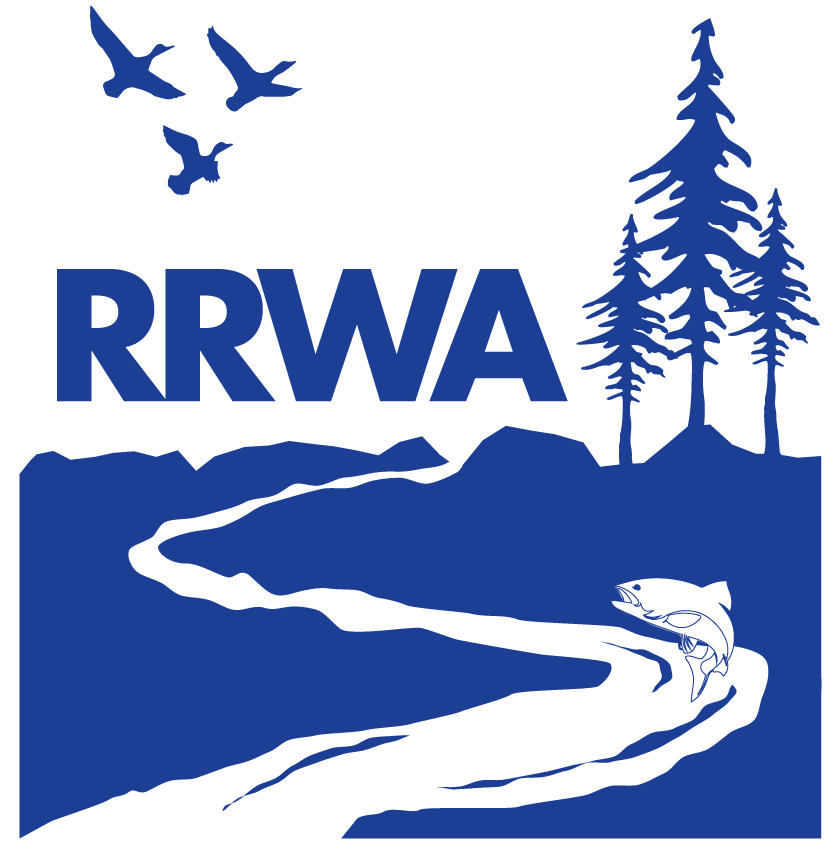How Does The Use of Pesticides Affect Our Water Quality?
Pesticides, including insecticides, herbicides, and fungicides, are chemicals used to kill or deter pests. Pesticides are often used in and around our homes, schools, and businesses. Did you know that these pesticides can make their way into our water supply? Not only can the chemicals be absorbed into our groundwater, but they can also be transported via runoff from irrigation or rainwater, traveling from our yards, down our streets, and into the storm drains.
In most California cities, runoff from the street is collected in storm drains, flowing through storm drain pipes, directly to our creeks and rivers, and eventually to the Pacific Ocean. Commonly used pesticides have been detected in creeks and rivers throughout California, threatening birds, fish, and other aquatic wildlife. In addition, the contaminated water from these waterbodies can make its way to our drinking water sources. Exposure to pesticides can have both short-term and long-term health impacts, especially to infants and young children with developing organs.

Many storm drain inlets throughout California have messages that read, “No Dumping – Drains to Creek”. These messages are used as a reminder to residents that the water flowing in the gutters and streets will flow directly into local creeks and rivers without being treated. Unlike our sanitary sewer system that collects water from indoor pipes and treats it at wastewater treatment plants before being released to our local waterways, storm drain runoff from streets and parking lots is collected by the storm drain system and remains untreated. It is important to be mindful of what enters the storm drain system, because it will affect the water quality of the streams, rivers, and oceans that it will be flowing to.
What can you do to help?
Rather than getting to the root cause of your pest problem, applying pesticides in and around your home will kill and deter all bugs, including those beneficial to your garden, like the ladybugs that feed on harmful insects or the bees that pollinate your plants. Getting rid of these beneficial insects will eliminate the natural solution to the pest problem and lead to a further need for pesticides. One way to keep pests out of your home is by using physical barriers – by making sure windows and doors are properly sealed. You can also reduce the need for pesticides in your yard by choosing plants that are pest-resistant and native to your area and ones that will attract beneficial insects that will feed on pests. Check out the Our Water Our World program for other great integrated pest management solutions to your specific pest problems at https://www.rrwatershed.org/project/our-water-our-world .

If the use of pesticides can’t be avoided, try to use ones that are non-toxic or less-toxic to the environment, and use them sparingly. To reduce the likelihood of runoff into the storm drain system, do not apply pesticides when rain is forecasted.
It is important to always store and dispose of pesticides properly, even when using less-toxic ones. Improper storage and disposal of pesticides can also lead to pesticide residue in our water. Here are some tips for safe storage and disposal:
- If you have pesticides in your home, always keep them in the original container, with the lid tightly sealed, in a locked cabinet out of reach of children and pets.
- In California, the only legal way to dispose of any unused pesticides, is by taking them to a household hazardous waste site. To find your nearest household hazardous waste collection site, visit earth911.com or
call 1-800-CLEANUP. - Pesticides should never be dumped down the drain. Wastewater from toilets, sinks, and showers is treated at local wastewater treatment plants, which are not designed to treat pesticides, leaving residue in treated water that flows to our rivers.
- Pesticide containers can only be thrown in the garbage if they are completely empty.
For more information on pesticides and water quality, visit the website for the University of California Agriculture and Natural Resources Statewide Integrated Pest Management Program at http://ipm.ucanr.edu/WATER.
This article was authored by Melis sa Duffy of West Yost Associates, on behalf of RRWA. RRWA is an association of local public agencies in the Russian River Watershed that have come together to coordinate regional programs for clean water, habitat restoration, and watershed enhancement.




